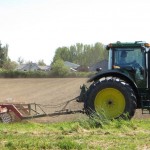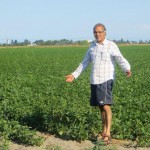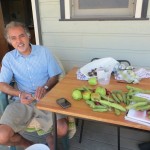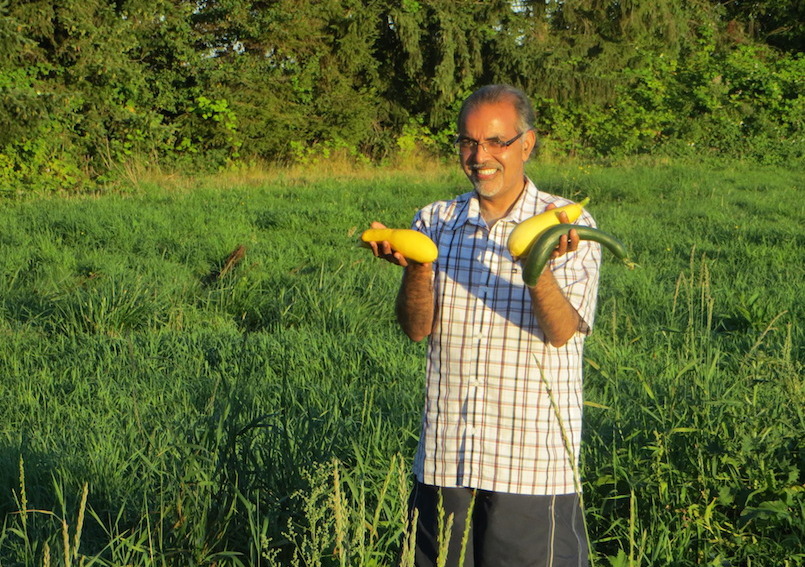
Land is Life: Thoughts on Organic Farming
Loving the land is not just important for me; sustainable, local agriculture is an issue of great importance for all Canadians.
I was born on a small farm in rural Punjab, India and grew up watching my grandfather work the land. He would take me for walks around our property and explain to me how important it is to know the land. He reminded me that even if you can’t see it with your eyes, there is always life beneath the soil and in the plants. He taught me that the land is life.
My grandparents and my mother instilled an interest in gardening and farming which has always stuck with me. My family now has a certified organic farm in Ladner BC, in an area that is part of the Agricultural Land Reserve and that has one of the best micro-climates for growing cruciferous vegetables (such as broccoli, cauliflower, and cabbage) and potatoes. I love to plant seeds and watch how they grow into healthy food throughout the year. I try to share this love for the land with my children and grandson.
Last year, Ab Dhaliwal, whose family has a long and rich history of farming in Ladner since 1952, planted green bush beans on our land. We welcomed a bumper crop of deliciously sweet beans which we enjoyed over many family meals. This year Ab will grow barley on our land and potatoes and bush beans on his own acreage. Barley will be used for organic dairy feed for two dairy farms in Cloverdale and Abbotsford. Potatoes and bush beans will be supplied to Fraserland Organics, Delta and Trader Joes in Washington, USA. My family and I hope to develop our farm into an integrated year-round organic farm and yoga wellness centre.
Loving the land is not just important for me and my family; the importance of sustainable, local agriculture is an issue of great importance for all Canadians. We are at a critical moment where one of the greatest needs of all of humanity is to find a balance between economic growth and environmental protection. It is important that we think consciously about our choices and their long-term effects. Growing local food means a reduction in carbon emissions caused by transporting fruits and vegetables over long distances, and growing organically ensures the healthiness of local citizens as well as the local environment. I have seen that my farm provides a habitat for many forms of wildlife including eagles, herons, rabbits, ducks, geese and frogs. When I see these creatures thriving, I understand that preserving green spaces and organic farming practices is about protecting entire ecosystems. Pesticides and other non-organic materials are not only harmful for human consumption, but can do serious damage to plants, animals, and water systems.
I believe in the importance of finding sustainable, local solutions that ensure each country, region, and family’s longevity, and an important aspect of this is providing healthy, local food for local people. I am proud of my organic farm and my farmer friends like Ab Dhaliwal. I know my farm is one amongst many which contribute to the health of Canadian families. It is also a wonderful place for me to escape, to go back to the land and remember that the land is life.
- Working the land in Spring 2012.
- On the edge of the green bush bean field.
- Some of the bounty from our farm in 2013.
- A heron on our farm. Photograph by Gregory Clarke, Pondera FM.
- A beautiful heron on our farm. Photograph by Gregory Clarke, Pondera FM.
- My grandson, Sam, and I rescued this frog from our farm.
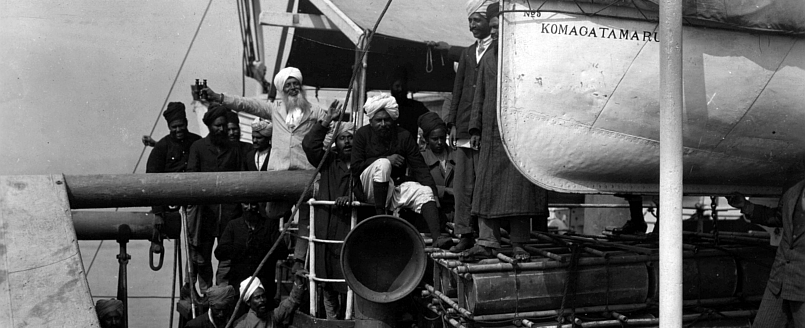
Remembering the Komagata Maru 100 Years Later
Today, May 23rd marks the 100th anniversary of the Komagata Maru ship’s arrival in Vancouver’s harbor.
It was a dark, sad and unfortunate period in Canada’s history.
In the early 1900s, Canada was not a welcoming place for new immigrants and visitors who were not from Europe. Racist and exclusionary policies discriminated against people coming from India, China, Japan and other parts of the world.
The Komagata Maru carried 376 passengers from the Punjab region of British India, all with dreams of settling and building new lives in Canada. But when they arrived in Burrard Inlet, they were denied entry. Instead, they stayed on the ship for two months, starving, and were shown no compassion by the government of that time.
Only 24 passengers were allowed to disembark in Vancouver. On July 23, 1914, the remaining passengers were forced to return to India, and many were persecuted and some killed by the British India government.
This is a critical point in Canadian history and the Indian independence movement for freedom from British rule.

My grandfather, Bishen S. Dhillon (left) with Labh S. Dhillon, Ra Singh and a friend, in California.
I have a deep personal connection to the legacies of the early Indian immigrants and the Komagata Maru passengers. Between 1905 and 1907 my maternal grandfather Bishen S. Dhillon and nearly 20 other men from his village Pandori Ladha Singh and surrounding villages arrived in British Columbia and California. They faced legalized discrimination. Many of them resolved to free India from British rule while seeking justice and equality in Canada. My relatives Naranjan S. Dhillon and Pratap S. Bains left Vancouver in 1913 for India and joined the freedom movement. The courageous Komagata Maru passengers directly challenged the Canadian “Continuous Passage” law which was intended to bar people from British India. It took 37 long years to free India in 1947 and to re-gain the right to vote for Indian immigrants in Canada.
The story of the Komagata Maru passengers lives on. Last September, I had the honour of visiting the Komagata Maru Memorial at Harbour Green Park with Anna Hazare, the internationally renowned Indian leader combatting corruption, promoting government transparency and accountability, and protecting human rights. He became visibly emotional as he read names of some of the passengers listed on the monument and softly said, “I did not know their story fully. They were real freedom fighters for India and for Canada.”
Today, as we remember here in Vancouver and other parts of the country, it is important for all of us to focus on creating a Canada where everyone is accepted regardless of where they come from. As Canadians, we need to be aware of our history so we can move forward, and together building an inclusive, caring and compassionate Canada.
Today, 100 years later, we remember, honour and respect the voyage of the Komagata Maru.
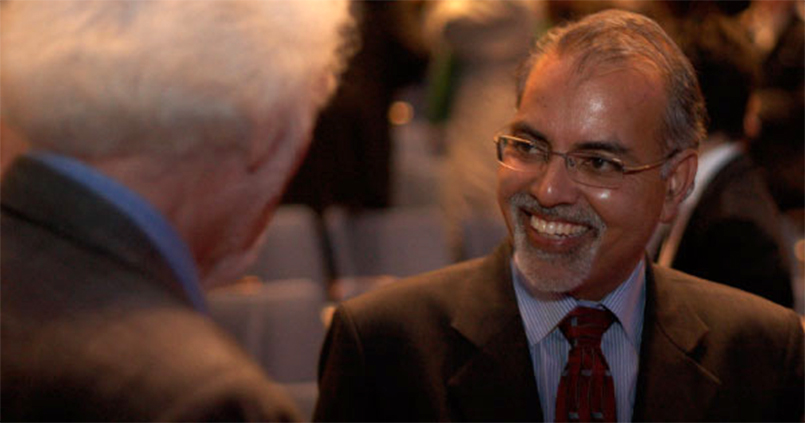
News: India untapped opportunity for B.C. companies
Originally published in Business in Vancouver on May 12, 2014.
The number of students from India enrolling in Simon Fraser University has been rising steadily over the past four years but business connections between India and British Columbia are still hampered by a lack of easy access, according to a Surrey businessman.
“India has gone through massive economic growth in the last 10 to 15 years,” said Barj Dhahan, who sits on Simon Fraser University’s India Advisory Council. “Amazing technological innovations are taking place in India. The middle class is growing by millions every year, the buying power in U.S. dollars is quite high, so those people have high aspirations for themselves and the goods and services they want. And so it offers opportunities for B.C., Surrey and Canadian businesses.”
That growth has brought more students to B.C. from India such that they now make up around 4% of SFU’s international enrolment, Dhahan said.
However, with that growth come growing pains. While Dhahan said India is receiving more recognition as a key international business partner, airline companies have been hesitant to follow suit.
A key barrier to increasing B.C.’s business connections and opportunities in India, he said, is the lack of non-stop air service from Vancouver to India’s major cities.
In November 2012, Business in Vancouver reported that Vancouver Airport Authority (YVR) executives were negotiating with carriers to launch non-stop flights to such places as Peru, Chile and India (“Airlines to launch new international non-stop services from Vancouver” – biv.com; November 20, 2012).
However, in an interview at the time, YVR director of aviation marketing John Korenic noted that strong demand for business-class tickets was key to the viability of non-stop flights between Vancouver and major cities in India such as New Delhi.
Anne Murray, YVR vice-president of marketing and communications, said Dhahan’s request is still on the authority’s radar.
“India is a market that we are very interested in. We are constantly looking for an airline partner that could provide non-stop flights to India, the largest market with no direct service from YVR.”
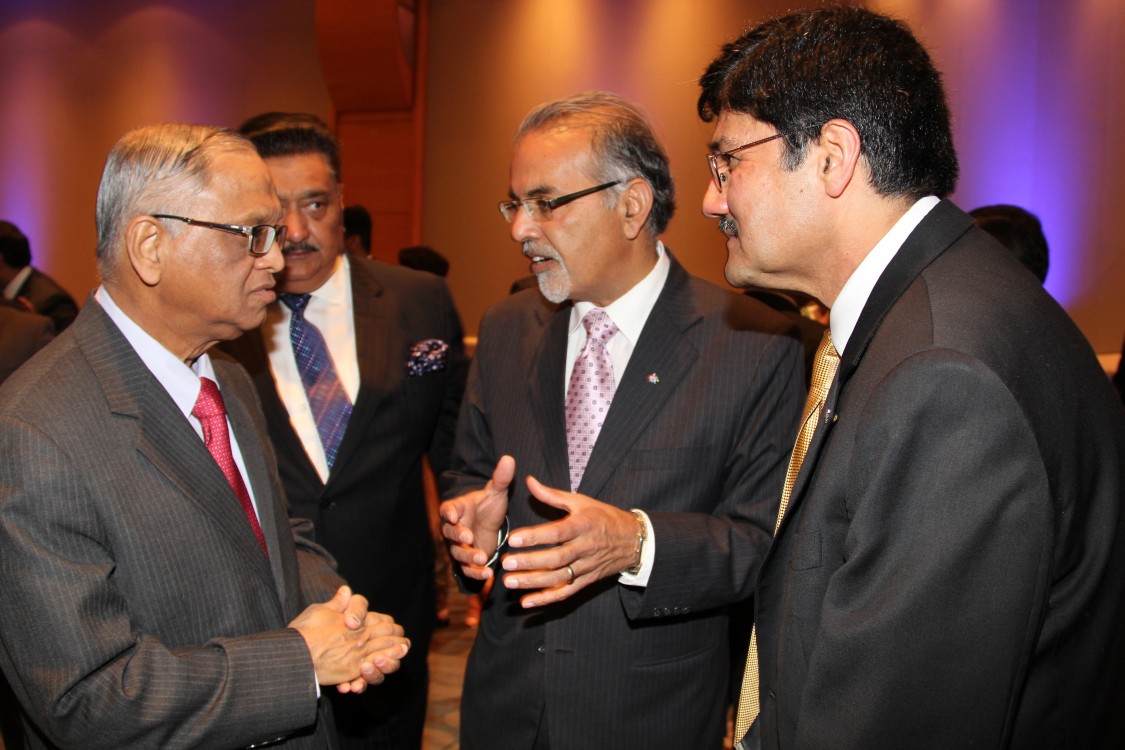
Surrey Board of Trade – 6th International Trades Awards
I had the pleasure of speaking on behalf of SFU’s India Advisory Council at the Surrey Board of Trade -6th International Trades Awards on May 8th, 2014. Below is the speech that I was fortunate to give on this night honouring excellence in Surrey.
I am grateful to Surrey Board of Trade for hosting this evening’s International Trade Awards in recognition of Surrey based companies engaged in international trade. I congratulate all the award nominees. I am pleased to represent Simon Fraser University here this evening as it is an integral part of our community and economy. Over the past few years I have had the distinct honour to serve on Simon Fraser University’s India Advisory Council along with notable community and business leaders including SBOT’s CEO, Anita Huberman. SFU’s India strategy links local community with efforts to build academic, research and business relationships in India. Members of the Advisory Council help open doors and provide advice on local and international engagement.
In 1981 a young man in his mid-thirties had some university education, a little bit of business experience, an innovative idea, a lot of ambition but no start-up capital. With a $200 loan from his wife and six knowledge partners he launched a small technology company. Today, Infosys is a multinational corporation providing business consulting, technology, engineering, and outsourcing services. It employs 165,000 people around the world including Canada. Its founder, Mr. Narayana Murthy has been listed among the 12 greatest entrepreneurs of our time by Fortune magazine. He has been described as the Father of the Indian IT sector by Time magazine!
Simon Fraser University is creatively engaging the minds and hearts of its 30,000 students including nearly 6,000 international students to raise-up innovators and entrepreneurs like Mr. Murthy. SFU’s India strategy was developed in 2006 and it has taken many years of visits and efforts to build our reputation locally and in India. For BC and Canada, India is a priority market. Both have been keen on increasing trade and business linkages with India, with particular focus on infrastructure, energy, food security, education, innovation and entrepreneurship. SFU is playing an important role in this. During the recent trip to India by SFU important letters of intent were signed with Indian Oil, India’s largest commercial enterprise and 88th on the Fortune ‘Global 500’ listings, the top-ranked Indian Institute of Technology – Bombay, and the Bombay Stock Exchange Institute.
SFU has benefited from participating in the mission organized by the City of Surrey, provincial visits to India, and the support of the BC Ministry of International Trade. At the state dinner for His Excellency Governor General David Johnston in New Delhi in February, I had the privilege to sit beside and chat with Mr. Butala, Chairman of Indian Oil. Canada is seen as an energy powerhouse by India. Indian Oil recognizes British Columbia and Simon Fraser University for their global leadership role in the fuel cell development and its commercialization. Thus the exciting research collaboration between Indian Oil and SFU will provide greater opportunities for SFU faculty members and students to advance this field globally and to help meet rising demand for energy in India and around the world.
SFU’s partnership with Ryerson University and the Bombay Stock Exchange Institute is an innovative collaboration to develop an international incubator and accelerator program for young Canadian and Indian entrepreneurs. The incubator, which I visited along with Governor General David Johnston and his official Canadian delegation in February, will enable start-ups to connect with mentors, customers and investors. It will provide internships, co-op opportunities and support for student entrepreneurs and their start-up and spinout companies. It will develop and situate their business ideas/innovations for the Indian marketplace. This agreement will help Surrey and BC start-up companies that want to develop the Indian market for their products and services and Indian companies that want to develop the North American market. It is expected that these two visionary initiatives will provide Surrey’s business community and young Canadian entrepreneurs an opportunity to explore and engage in significant and meaningful bilateral business activities with India.
On April 26th in Toronto, in his acceptance speech of Canada India Foundation’s Chanchlani Global Indian Award, Mr. Murthy stressed that there was a need to build a world where more and more wealth is created while human dignity is enhanced. He said the need of the hour is to practice compassionate capitalism – bringing the power of ideas and research together in finding innovative solutions for the benefit of the larger masses. It is said “Time and tide wait for no man.” The trade opportunities for you with Asia and India in particular are enormous. All you need is to seize the opportunity! SFU is there to do its part!

Mr. Narayana Murthy, Jay Minhas, Barj Dhahan and Dr. Nemy Banthia, CEO, IC-IMPACTS Ltd. (Canada India Centre of Excellence, UBC)

IC-IMPACTS “Water for Health” Initiative in India
Just announced today is the joint “Water for Health” initiative between India’s Department of Biotechnology (DBT) and IC-IMPACTS Centres of Excellence, Canada. This is a project I have been involved with creating over the last year that supports collaborative research projects focused on developing and evaluating new technologies in the research areas of water and health.
DBT and IC-IMPACTS will each commit $1.5 million (Canadian dollars / equivalent Indian Rupees) to help strengthen innovative collaborations between researchers working in India and Canada, and to help stimulate practical research outcomes applied in communities of both nations.
Further details on this project are available on IC-Impacts.
Thank you to Sue Roppel for these kind words:
“It builds upon the great work of the “Water for Health workshop” with Baba Farid University of Health Sciences, the success for which we are deeply indebted to Barj and so we take this opportunity to sincerely thank him as well for the success achieved today.”
Image from http://ic-impacts.com/?p=1899


